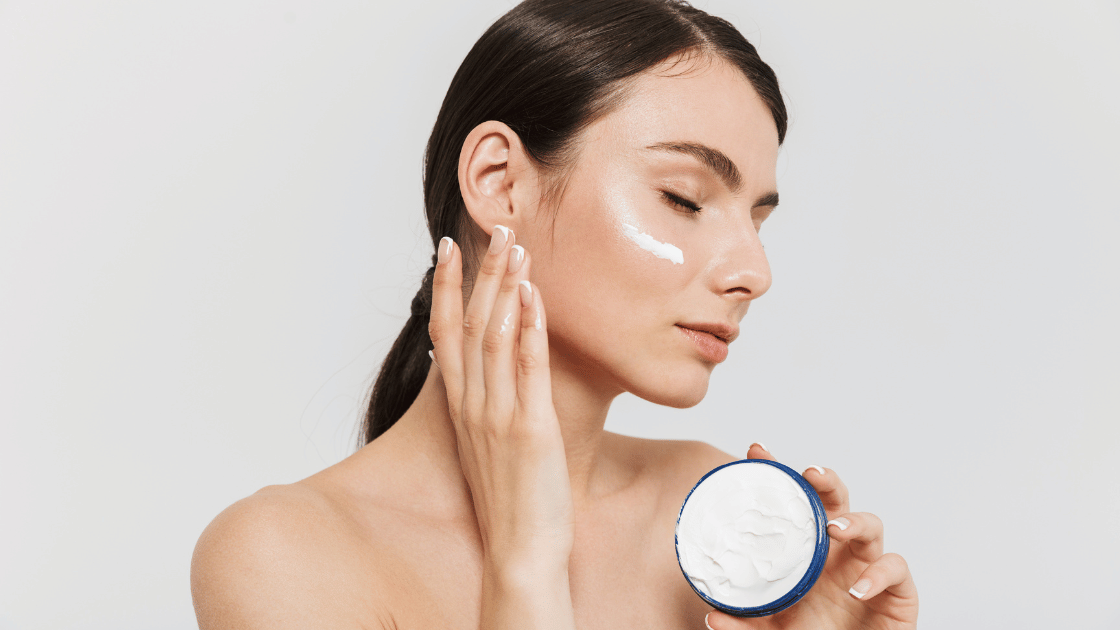10 Essential Winter Skincare Tips From the Experts

Taking care of your skin during the winter months is essential for maintaining a healthy and glowing complexion. The cold weather, low humidity levels, and indoor heating can strip your skin of its natural moisture, leaving it dry, flaky, and irritated. That’s why it’s important to follow expert advice and adjust your skincare routine to combat these winter skin woes.
In this article, we will share 10 essential winter skincare tips from the experts to help you keep your skin nourished and protected throughout the season. By implementing these tips, you can prevent common winter skin problems and achieve a radiant complexion even in the harshest conditions.
Here are some tips from skincare professionals on how to take care of your skin during winter:
- Hydrate your skin from within to combat dryness
- Choose the right cleanser and moisturizer for winter
- Protect your lips from chapping
- Shield your skin from the cold weather elements
- Make nourishing face masks at home
- Take care of your lips with DIY remedies
- Understand the role of nutrition in winter skincare
- Prioritize self-care for healthy skin and mind
With these expert insights, you can develop an effective winter skincare routine that will keep your skin looking its best all season long. Let’s dive into these essential tips recommended by skincare professionals.
Understanding Winter Skincare
During the winter months, our skin undergoes significant changes due to the cold weather and dry air. It’s important to understand these changes and how they can affect our skin health. In this section, we will explore the causes and symptoms of dry skin during winter, shedding light on why our skin becomes flaky, itchy, and tight.
Causes of Dry Skin During Winter
One of the main culprits behind dry skin during winter is the low humidity levels. When the air gets cold, it loses its moisture content, making it drier. As a result, the moisture in our skin evaporates more quickly, leaving it dehydrated. Additionally, indoor heating systems further contribute to low humidity levels by stripping moisture from the air.
- Hot showers: Prolonged exposure to hot water strips away the natural oils that keep our skin hydrated. This can lead to dryness and exacerbate existing dry skin conditions.
Symptoms of Dry Skin During Winter
Dry skin manifests itself in various ways during winter. Here are some common symptoms to look out for:
- Flakiness: When your skin lacks moisture, dead skin cells tend to accumulate on its surface, resulting in flaky patches.
- Itchiness: Dryness often leads to itchiness as the skin becomes irritated and sensitive.
- Tightness: Dry skin feels tight because it lacks the necessary hydration and flexibility.
Understanding these causes and symptoms equips us with knowledge about what our skin needs during this season. With this understanding, we can adjust our skincare routine accordingly to provide optimal care for our skin.
Tips for Adjusting Your Skincare Routine for Winter
During the winter season, it is important to adjust your skincare routine to combat the effects of cold weather and keep your skin healthy and hydrated. Here are some expert tips to help you maintain a glowing complexion all winter long:
1. Choose a suitable moisturizer
Winter skincare calls for a moisturizer that is rich in emollients and occlusives. Emollients help to soften and smooth the skin by filling in the gaps between skin cells, while occlusives create a protective barrier that locks in moisture. Look for ingredients like shea butter, cocoa butter, or plant oils such as jojoba or argan oil.
2. Prioritize hydration
Hydration is key during the winter months when the air tends to be drier. Opt for moisturizers with hydrating ingredients like hyaluronic acid, which can attract and retain moisture in the skin. Additionally, drink plenty of water throughout the day to keep your body and skin hydrated from within.

3. Use a humidifier
Indoor heating systems can contribute to dryness in the air, which can further dehydrate your skin. Using a humidifier in your home or office can add moisture back into the air, helping to prevent dryness and maintain optimal skin hydration levels.
Adjusting your skincare routine for winter is essential to combat common skin issues such as dryness, flakiness, and itchiness. By choosing the right moisturizer, prioritizing hydration, and using a humidifier, you can keep your skin nourished and protected throughout the colder months.
Expert Winter Skincare Tips
Taking care of your skin during the winter requires some expert tips to keep it healthy and glowing. In this section, we will explore the importance of staying hydrated and the foods and drinks that can promote hydration.
1. Hydrate from Within
One of the most important aspects of your winter skincare routine is staying hydrated. Drinking an adequate amount of water is crucial for maintaining healthy skin, even during the colder months. Proper hydration helps to replenish moisture lost due to dry indoor heating and harsh weather conditions. Additionally, staying hydrated can improve your overall well-being and support various bodily functions.
2. Foods and Drinks That Promote Hydration
Apart from drinking water, incorporating hydrating foods into your diet can provide additional benefits for your skin. Here are some examples:
- Cucumber
- Watermelon
- Citrus fruits
These foods have high water content and can help hydrate your body from within. Green tea is also a great option as it not only hydrates but also provides antioxidants that protect against oxidative stress.
By prioritizing hydration and including hydrating foods and drinks in your diet, you can ensure that your skin stays nourished and moisturized even in the dry winter months.
2. Use a Gentle Cleanser
When it comes to your winter skincare routine, using a gentle cleanser is essential. Here’s why:
Why gentle cleansers are recommended for winter
Harsh cleansers can strip away the natural oils from your skin, leaving it dry and vulnerable to the harsh winter conditions. Opting for a gentle cleanser helps maintain the skin’s moisture balance and prevents further dryness.
Tips for choosing a suitable cleanser for your skin type
Consider your skin type when selecting a cleanser. Here are some tips:
- Dry or sensitive skin: Look for gentle, hydrating cleansers that are fragrance-free and soap-free.
- Oily or acne-prone skin: Choose a cleanser that is oil-free and non-comedogenic to avoid clogging pores.
Remember, cleansing is an important step in your skincare routine, but using the right products is crucial during winter. So be sure to choose a gentle cleanser that will effectively clean your skin without stripping away its natural moisture.
3. Moisturize Regularly
During the winter months, it’s important to moisturize regularly to keep your skin hydrated and protected. Here are some expert tips to include in your winter skincare routine:
1. Drink Plenty of Water
Adequate hydration starts from within. Make sure you’re drinking enough water throughout the day to keep your skin hydrated from the inside out.
2. Eat Hydrating Foods
Include hydrating foods in your diet, such as cucumbers, watermelon, and celery. These foods have high water content and can help maintain moisture levels in your skin.
3. Use a Moisturizer for Dry or Sensitive Skin
Choose a moisturizer that is specifically made for dry or sensitive skin. Look for products that contain hydrating ingredients like ceramides and hyaluronic acid. These ingredients help to lock in moisture and strengthen the skin’s barrier.
4. Look for Key Ingredients
Ceramides are lipids that help to retain moisture in the skin, while shea butter provides deep hydration and nourishment. Look for these ingredients in your winter moisturizer for best results.
Remember, consistency is important when it comes to moisturizing regularly. Apply your moisturizer at least twice a day, especially after cleansing or taking a shower when the skin is still slightly damp. By following these expert tips, you can make sure that your skin stays soft, supple, and protected throughout the winter season.
4. How to Protect Your Lips During Winter
During winter, our lips are especially prone to becoming dry and cracked. The cold weather and low humidity can remove the moisture from our lips, causing them to feel rough and uncomfortable. To keep your lips healthy and hydrated during this time, here are some things you can do:

Stay Hydrated
Make sure to drink enough water throughout the day to keep your body hydrated. This not only benefits your overall health but also helps in maintaining moisture in your lips.
Eat Hydrating Foods
Include foods that have a high water content in your diet. Some examples of hydrating foods are cucumber, watermelon, and green tea. These foods can provide hydration not just to your body but also to your lips.
Use a Lip Balm
Invest in a good lip balm that contains nourishing ingredients like shea butter, coconut oil, or beeswax. These ingredients can create a protective layer on your lips, sealing in moisture and preventing dryness.
Avoid Licking Your Lips
Refrain from licking your lips when they feel dry. Although it may provide temporary relief, saliva evaporates quickly and can leave your lips even drier than before.
Shield Your Lips from the Elements
Protect your lips from harsh winds and cold temperatures by wearing a scarf or covering your face with a soft fabric. This can help prevent windburn and further drying of your lips.
By following these simple tips, you can take care of your lips during the winter season, ensuring that they stay soft, smooth, and comfortable.
5. Protect Your Skin from the Cold
During the winter months, it’s important to take care of your skin in order to prevent issues like windburn and dryness caused by the cold weather. Here are some expert tips to help you maintain healthy and glowing skin during winter:
- Stay hydrated: Make sure to drink enough water throughout the day. Proper hydration is essential for keeping your skin healthy, even when it’s cold outside.
- Eat hydrating foods: Include foods in your diet that are naturally hydrating, such as cucumbers, watermelon, and green tea. These foods have a high water content and can help nourish your skin from the inside out.
- Wear protective clothing: Dress appropriately to protect your skin from the cold temperatures. Choose long sleeves, pants, and hats to cover any exposed areas.
- Use winter accessories: Add extra layers of protection against the cold wind by wearing scarves, gloves, and earmuffs.
By following these tips, you can keep your skin shielded from the cold weather and ensure that it stays healthy and vibrant throughout the winter season.
Additional Winter Skincare Tips
Winter can be harsh on our skin, leaving it dry and dull. To give your skin a boost and achieve that coveted winter glow, try these nourishing face masks using simple ingredients you may already have in your kitchen:
1. Honey and Avocado Mask
This mask is perfect for hydrating and rejuvenating dry winter skin.
- Mash half an avocado and mix it with a tablespoon of raw honey until you get a smooth paste.
- Apply the mixture to your face and leave it on for 15-20 minutes before rinsing off with warm water.
Avocado is rich in healthy fats that moisturize the skin, while honey acts as a natural humectant, drawing moisture into the skin.
2. Oatmeal and Yogurt Mask
If you have sensitive or irritated skin during winter, this mask can provide relief.
- Blend half a cup of oatmeal into a fine powder and mix it with two tablespoons of plain yogurt.
- Apply the mixture to your face and let it sit for 15-20 minutes before rinsing off.
Oatmeal has anti-inflammatory properties that soothe irritation, while yogurt contains lactic acid that gently exfoliates the skin, revealing a brighter complexion.
3. Turmeric and Milk Mask
This mask is great for brightening dull winter skin.
- Mix one teaspoon of turmeric powder with enough milk to form a paste.
- Apply the mixture evenly on your face and leave it on for 10-15 minutes before washing off.
Turmeric has antioxidant properties that help improve skin tone, while milk contains lactic acid that promotes gentle exfoliation.
By incorporating these nourishing face masks into your skincare routine, you can provide your skin with the extra care it needs during winter. Experiment with different ingredients to find what works best for your skin type, and remember to always patch test new ingredients before applying them to your entire face.
2. Lip Care Remedies
During the winter months, our lips often bear the brunt of the cold weather, leading to dryness, cracking, and discomfort. To keep your lips soft and smooth, try these DIY lip care remedies:
Lip Scrubs
Exfoliating your lips helps remove dead skin cells and promotes blood circulation, resulting in healthier-looking lips. Here’s a simple recipe for a homemade lip scrub:
- Ingredients:
- 1 teaspoon honey
- 1 teaspoon brown sugar
- 1/2 teaspoon coconut oil
- Instructions: Mix all the ingredients together and gently massage the scrub onto your lips in circular motions. Rinse off with warm water and pat dry.
Overnight Treatments
Applying a nourishing treatment to your lips before bed can help restore moisture while you sleep. Here’s an overnight lip treatment recipe:
- Ingredients:
- 1 teaspoon shea butter
- 1/2 teaspoon almond oil
- 1/2 teaspoon beeswax
- Instructions: Melt the shea butter, almond oil, and beeswax together in a double boiler or microwave. Once melted, pour the mixture into a small container and allow it to cool and solidify. Apply a thin layer to your lips before bed and leave it on overnight.
By incorporating these lip care remedies into your winter skincare routine, you can ensure that your lips stay hydrated, nourished, and ready to face the cold weather with confidence.

The Role of Nutrition in Winter Skincare
A protein-rich diet plays a crucial role in maintaining healthy skin during the winter season. Here’s how a well-balanced diet can contribute to your skincare routine:
1. Collagen production
Protein is essential for the production of collagen, a protein that provides structure and elasticity to the skin. Adequate collagen levels help keep your skin firm and supple, reducing the appearance of fine lines and wrinkles.
2. Repair and regeneration
Proteins are made up of amino acids, which are the building blocks for tissue repair and regeneration. During winter, when the skin is exposed to harsh weather conditions, a protein-rich diet can support the repair process and strengthen the skin barrier.
3. Hydration
Certain protein-rich foods, such as fish, eggs, and tofu, also contain omega-3 fatty acids. These healthy fats help maintain skin hydration by preserving moisture and preventing dryness.
To incorporate more protein into your winter skincare routine, consider adding these foods to your diet:
- Lean meats like chicken or turkey
- Fish rich in omega-3 fatty acids such as salmon or sardines
- Eggs
- Legumes like lentils or chickpeas
- Dairy products like Greek yogurt or cottage cheese
- Nuts and seeds
It’s important to note that while protein is beneficial for skin health, it should be part of a well-rounded diet that includes other essential nutrients. Be sure to also consume a variety of fruits, vegetables, whole grains, and healthy fats for overall skin health.
Remember, nourishing your skin from within is just as important as external skincare practices. By incorporating a protein-rich diet into your winter routine, you can support your skin’s health and achieve a radiant complexion even in cold weather.
Prioritizing Self-Care for Healthy Skin and Mind
Taking care of your skin during winter goes beyond just the physical aspects. It is essential to prioritize self-care for both your skin and your mental well-being. The connection between mental health and skincare is significant, as stress and anxiety can have a direct impact on the health of your skin. Incorporating self-care practices into your winter skincare routine can help promote healthy skin and a positive mindset.
Tips for Prioritizing Self-Care for Healthy Skin and Mind
Here are some tips on how to prioritize self-care for healthy skin and mind during the winter:
1. Practice Mindfulness
Take some time each day to focus on the present moment and engage in activities that bring you joy and relaxation. This could include:
- Meditation
- Deep breathing exercises
- Enjoying a cup of warm tea
2. Establish a Skincare Ritual
Create a skincare routine that you enjoy and look forward to. This could involve:
- Using luxurious skincare products
- Taking warm baths with essential oils
- Treating yourself to a facial massage
3. Stay Active
Engaging in regular physical activity not only benefits your overall health but also promotes good circulation and oxygenation of the skin. Some ideas for staying active during winter are:
- Bundle up and go for a brisk walk
- Try indoor workouts like yoga or dancing
4. Get Enough Sleep
Adequate sleep is crucial for both your physical and mental well-being. Aim for 7-8 hours of quality sleep each night to allow your body and mind to rest and rejuvenate.
5. Connect with Nature
Spending time in nature has been shown to reduce stress levels and improve mental health. During winter, you can:
- Bundle up and take a walk in the park
- Find a peaceful spot to sit and enjoy the beauty of winter landscapes
Remember, taking care of yourself holistically will not only benefit your skin but also contribute to an overall sense of well-being. Incorporate these self-care practices into your winter skincare routine to promote healthy skin and a positive mindset throughout the season.
Conclusion
Winter skincare is important for keeping your skin healthy and glowing when it’s cold outside. By following these tips, you can protect your skin from the negative effects of winter and keep it looking its best. Here are the main points to remember:
- Stay hydrated: Drink plenty of water and eat foods that are hydrating, like fruits and vegetables, to keep your skin moisturized.
- Use a gentle cleanser: Avoid harsh soaps that can dry out your skin. Look for a mild cleanser instead.
- Moisturize regularly: Apply a moisturizer with ingredients like ceramides or shea butter to keep your skin soft and supple.
- Take care of your lips: Use a lip balm to prevent chapping, and exfoliate your lips occasionally with a homemade scrub.
- Protect yourself from the elements: Wear warm clothing, like scarves and gloves, to shield your skin from the cold air.
Remember that taking care of yourself is just as important as taking care of your skin. Make time for activities that help you relax and reduce stress, like reading or taking a bath. By following these tips and making self-care a priority, you can have healthy, radiant skin all winter long.







